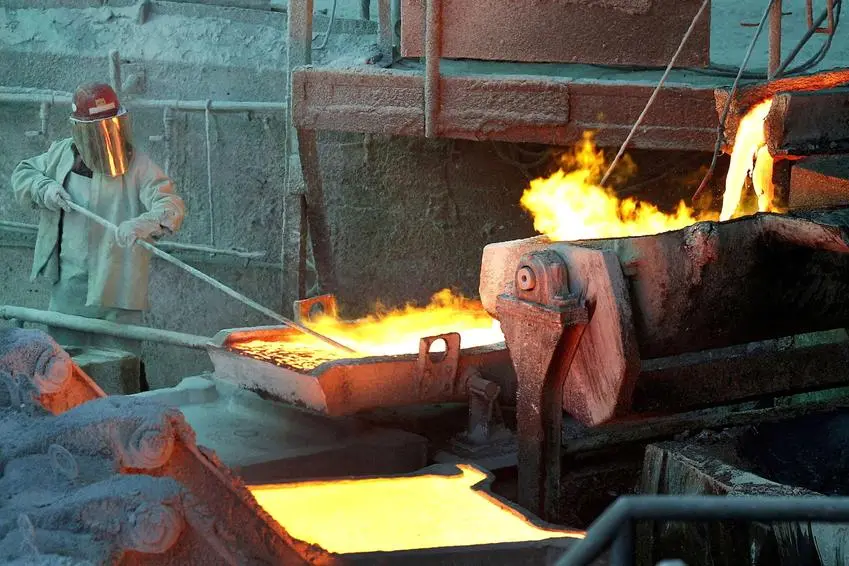PHOTO
LONDON - Copper prices hit a one-month low on Thursday due to concerns about higher interest rates denting global economic growth and signs of weak demand in top metals consumer China.
Three-month copper on the London Metal Exchange was down 1% at $8,174 per metric ton in official open-outcry trading, after hitting $8,141, its lowest since June 1.
"We are witnessing the impact of macro drivers on base metals prices with hawkish Fed comments, U.S. dollar strength and growth fears dominating sentiment," Standard Chartered analyst Sudakshina Unnikrishnan said.
U.S. Federal Reserve Chairman Jerome Powell on Wednesday did not rule out more rate hikes at the next policy meeting. The dollar was initially supported by this outlook, but then started falling on Thursday, making dollar-priced industrial metals more attractive to holders of other currencies.
In China, factory activity is expected to contract for a third straight month in June, underscoring the need for further policy stimulus to counter weak demand.
Global exchange stocks of copper, used in power and construction, have sunk to 15-year lows in recent days.
"With the decline in exchange inventories which is particularly acute in copper, the market is deprived of a comfortable buffer which may heighten price volatility," Unnikrishnan said.
Copper stockpiles in LME-registered warehouses rose slightly - by 150 metric tons to 75,425 - and yet remain close to its seven-week low, LME daily data showed on Thursday.
LME aluminium fell 1.1% to $2,150 per metric ton in official activity.
The inventory of this metal in LME-approved warehouses slid to 531,225 metric tons, the lowest since mid-April, after 3,125 metric tons of outflows, mainly from Port Klang in Malaysia. Cancelled warrants in Port Klang now amount to 80% of the total stock.
Among other metals, zinc declined 0.7% to $2,334, lead was down 0.9% at $2,053, tin lost 1.0% to $25,800 and nickel fell 0.5% to $19,950.
(Reporting by Polina Devitt in London; additional reporting by Mai Nguyen in Hanoi; editing by David Evans and Jason Neely)





















